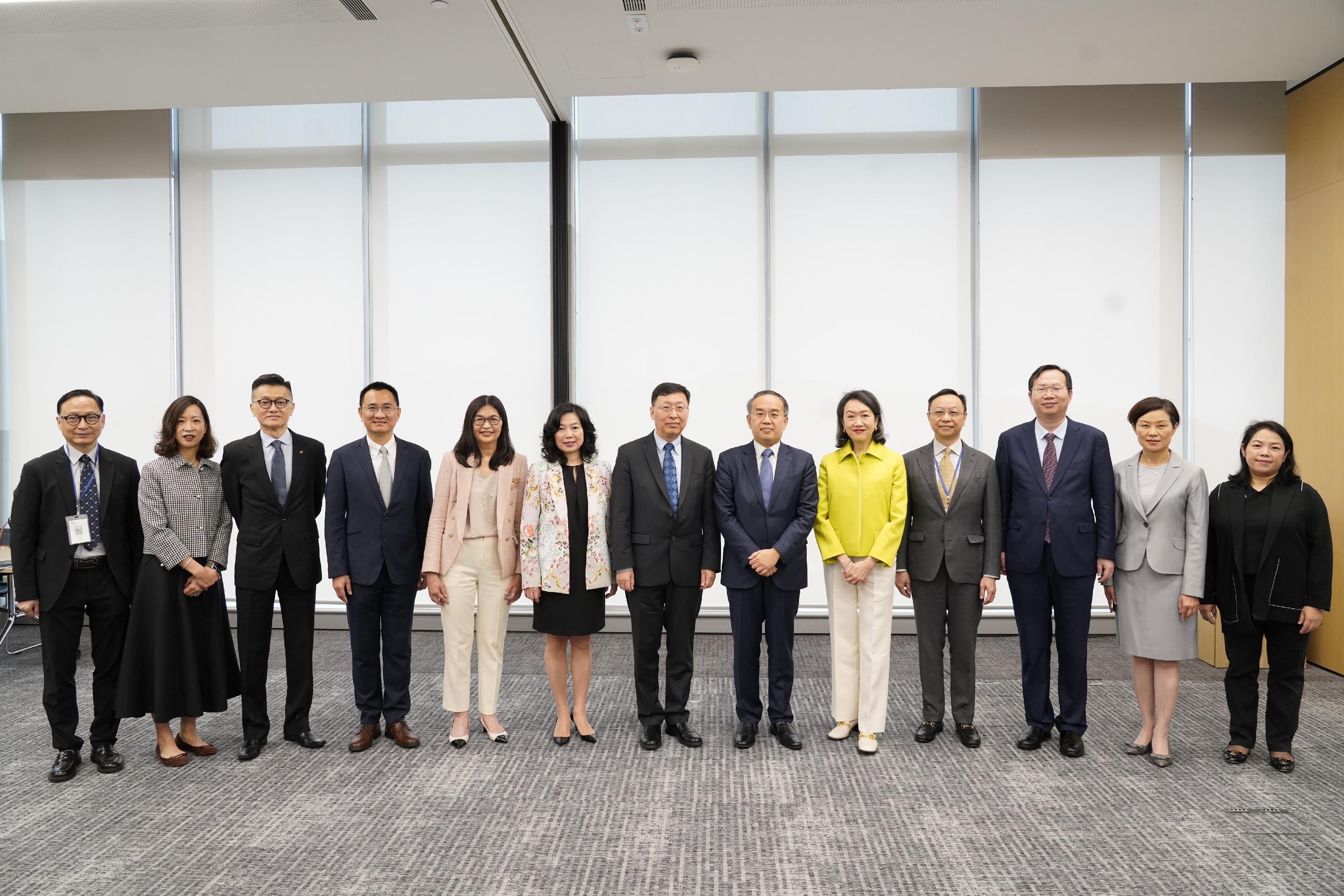Cross-Agency Steering Group and International Sustainability Standards Board members met in Hong Kong (with photo)
The following is issued on behalf of the Hong Kong Monetary Authority:
Members of the Green and Sustainable Finance Cross-Agency Steering Group (Steering Group) and the International Sustainability Standards Board (ISSB) met today (March 27) to discuss and promote sustainability disclosures by companies and financial institutions in Hong Kong.
The Steering Group and the ISSB held an industry roundtable with around 20 representatives from listed companies and different financial services sectors. Participants exchanged views on their experiences in and the unique circumstances for entities making sustainability disclosures in Hong Kong and Asia. They also explored the core elements of a local sustainability disclosures ecosystem that will require further support.
In the subsequent discussion between the Steering Group and the ISSB, they agreed to strengthen collaboration on developing comprehensive capacity building programmes. They also will maintain continued dialogue as Hong Kong furthers its commitment to align sustainability disclosures requirements with international standards (Note).
The Vice Chair of the ISSB, Mr Hua Jingdong, said, "Today's roundtable was an important opportunity to hear about and discuss Hong Kong's progress in developing a local sustainability disclosure ecosystem which includes adoption of the IFRS (International Financial Reporting Standards) Sustainability Disclosure Standards as a key element. The ISSB is committed to working closely with the industry and regulators in Hong Kong and the region more broadly to build capacity and drive more decision-useful sustainability-related financial disclosures."
The Secretary for Financial Services and the Treasury, Mr Christopher Hui, said, "The Government has just issued a vision statement, setting out our aim to be among the first jurisdictions to align the local sustainability disclosure requirements with the IFRS Sustainability Disclosure Standards. This meeting with the ISSB and its Beijing Office has deepened mutual collaboration which is conducive to the long-term development of Hong Kong's sustainable disclosure ecosystem."
Co-Chair of the Steering Group and the Chief Executive Officer of the Securities and Futures Commission (SFC), Ms Julia Leung, said, "The Steering Group will build on existing initiatives to further promote data availability and develop sustainable finance talent and industry capabilities. These elements are critical for Hong Kong's successful adoption of international sustainability reporting standards. We are delighted to advance this partnership with ISSB and its Beijing Office and will continue to engage with local and international stakeholders."
For details on the initiatives of the Steering Group and its members, please visit sustainablefinance.org.hk/en/.
About the Steering Group
Established in May 2020, the Steering Group is co-chaired by the Hong Kong Monetary Authority and the SFC. Members include the Financial Services and the Treasury Bureau, the Environment and Ecology Bureau, the Insurance Authority, the Mandatory Provident Fund Schemes Authority, the Accounting and Financial Reporting Council, and Hong Kong Exchanges and Clearing Limited. The Steering Group aims to co-ordinate the management of climate and environmental risks to the financial sector, accelerate the growth of green and sustainable finance in Hong Kong and support the Government's climate strategies.
Note: In the Policy Measures of the 2023 Policy Address, the Government committed to work with relevant financial regulators and stakeholders to develop a roadmap on the appropriate local adoption of the IFRS Sustainability Disclosure Standards to align with international standards.
